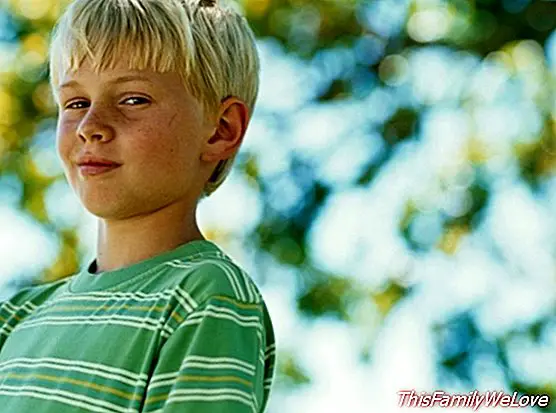The arrogant, the superiority complex of children

"I'm always right and I do everything very well." If a child often uses phrases like this, walks with a superior air, looks over his shoulder humiliating others and continually gives advice to everyone around him, we can face a high-handed child.
Children become arrogant either because of a family affective lack that makes them look for security in themselves or, for an education received in competitiveness, in being the best.
On many occasions, an education based on instilling in them that they must be the best, that happiness is based on personal success, together with high doses of consent from parents unable to deny their children anything, can give rise to prepotent children. , haughty, with superiority complex. Their arrogance also makes them unfriendly, vain, antisocial and, sometimes, dangerous.
Aggressively or not: the superiority complex of children
Arrogance and arrogance arise if you do not educate yourself in humility. In a child of these ages, we must distinguish if it is a personality trait or specific reactions to certain situations, since the way to eradicate its arrogance will be more expensive in the first case, than when it is momentary impulses.
On the other hand, we must also differentiate aggressive overbearing children from quiet ones. There are those who use physical or psychological violence to achieve their wishes; but there are other arrogant children who, far from being violent, externally are kind, affectionate, even seek the good of others, although always under their prism and opinion. The latter suffer more than the former.
Common characteristics of prepotent children
Both the aggressive and the friendly, have common features in their personality:
- They are self-sufficientThey almost never accept advice.
- Almost always want to have the last word before any decision, game or knowledge.
- They often use phrases like: "I already knew", "I'm right", "listen to me".
- They are more arrogant in well-off social classes, because when people have very few material things, they give great value to human relationships.
- They are usually classists: they show off to go to the best school, to live in the best zone and they make ostentation of what they have. Sometimes, this class is encouraged by parents: "Do not go with that child, it's not our social condition."
- They manifest narcissistic reactions: they think they are called to be very important, they go down the street imagining looks of admiration, of envy. They are usually scholarly and hard-working children, but full of vanity, they think they are different from what they really are.
- They prefer and look for everything that smells of greatness, power, genius, immortality.
How is the arrogant child with aggressiveness and emotional toughness
1. Pride and self-love consume you. He has to be the first in everything.
2. Has the desire to excel and to be able to to dominate others.
3. Believe that it has no faults, nor does it support criticism. Instead, he continually sees failures in others.
4. Does not perform activities that are given wrong, and humiliates others when they do them: "Those who play football are hooligans".
5. Do not look for friends, look for "servants" Follow him
6. Live as if you are not affected by others.
7. Select your friends for the benefits that can be reported to him, they are interested.
8. Maintains a cocky attitude and of indifference when "others" tell things.
9. Has emotional hardness. He is cold in his relationships and tends to be more rational than impulsive.
10. Despise the weakest.
11. Lack of concern for the feelings of others it allows him to achieve apparent successes, which fill the gap left by the lack of interpersonal relationships.
How is the arrogant child with kindness and sensitivity
1. It is not so much internal pride, but eagerness for competitiveness.
2. Your desire to excel is more with yourself, than to dominate others.
3. He has difficulty recognizing his failures or is continually excused.
4. As a perfectionist, he does not do something that is bad for him, but at home he rehearses.
5. Give advice to your friends, it makes them see that he knows more than them. Seek to save lives.
6. Yes is affected by the opinion of others, but he thinks that they do not understand him or value him.
7. It is less interested, but sometimes he is not very understanding with other clumsier children.
8. In conversations, look with kind face but he wants to have the last word.
9. Love others, but not as they are, but to improve them.
10. Care about others but out of pity or sorrow.
11. Worries about the feelings of others, but always so that when he does something good, they praise and applaud him.
Marta Santín
Advice: Javier Urra.Writer. First Defender of the Minor. Clinical and Forensic Psychologist. Patron of UNICEF. College professor.
More information in the book:
Educate the character, of Alfonso Aguiló. Ediciones Word.
You may also like:
- How to stop the superiority complex of prepotent children
- The effects of excessive gifts on children
- Humility, marginal virtue?
- Opinion. The overbearing child




